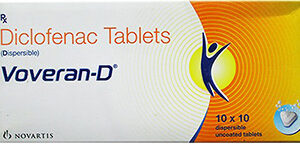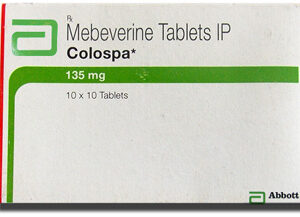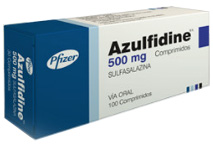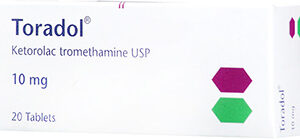Aspirin, also known as acetylsalicylic acid, is a medication commonly used to relieve pain, reduce inflammation, and lower fever. It belongs to a class of drugs called nonsteroidal anti-inflammatory drugs (NSAIDs). Aspirin’s primary mode of action is by inhibiting the synthesis of prostaglandins, which are chemical messengers that promote inflammation, pain, and fever. This drug has been widely used for decades and is available over-the-counter, making it easily accessible to the general public.
Warnings
While aspirin is generally considered safe, there are certain situations where its use is contraindicated. It is important to be aware of these contraindications to avoid potential harm:
- Do not take aspirin if you have a known allergy or hypersensitivity to salicylates or nonsteroidal anti-inflammatory drugs (NSAIDs).
- Aspirin is not recommended for children and teenagers under the age of 16, as it has been associated with Reye’s syndrome, a rare but serious condition affecting the liver and the brain.
- If you have a history of stomach ulcers, bleeding disorders, or are taking anticoagulant medications, consult with your healthcare provider before taking aspirin, as it can increase the risk of gastrointestinal bleeding.
- Individuals with asthma may experience exacerbation of symptoms after taking aspirin, leading to a potentially life-threatening condition known as aspirin-exacerbated respiratory disease (AERD).
Potential Side Effects
Although aspirin is generally well-tolerated, some individuals may experience side effects. Common side effects include:
- Gastrointestinal discomfort, such as stomach pain, heartburn, or nausea.
- Increased bleeding tendency, particularly in individuals with underlying bleeding disorders or those taking anticoagulant medications.
- Allergic reactions, which can range from mild skin rashes to severe anaphylaxis.
Less common but more serious side effects may occur, such as stomach ulcers, gastrointestinal bleeding, kidney damage, or liver toxicity. If you experience any unusual or severe symptoms while taking aspirin, seek immediate medical attention.
Dosing Information
Aspirin comes in various formulations, including tablets, chewable tablets, and effervescent tablets. The dosing instructions may vary depending on the indication and the specific product. It is important to read and follow the label instructions or consult with a healthcare professional for appropriate dosing guidance. Some general dosing information includes:
| Type of Aspirin | Dosage | Frequency |
|---|---|---|
| Regular Strength Tablets (325 mg) | 1-2 tablets | Every 4-6 hours, as needed |
| Low Dose Tablets (81 mg) | 1 tablet | Once daily, for prevention purposes |
If you miss a dose of aspirin, take it as soon as you remember. However, if it is close to the time for your next scheduled dose, skip the missed dose and continue with your regular dosing schedule. Do not take a double dose to make up for a missed one. In case of an overdose, seek immediate medical attention or contact a poison control center. Symptoms of aspirin overdose may include ringing in the ears, dizziness, confusion, rapid breathing, sweating, and vomiting.
What to Watch Out For
Aspirin may interact with certain medications, increasing or decreasing their effects, or potentially causing adverse interactions. It is important to inform your healthcare provider about all the medications, supplements, and herbal products you are taking. Some notable drug interactions with aspirin include:
- Anticoagulant medications, such as warfarin or heparin, may increase the risk of bleeding when taken concurrently with aspirin.
- Nonsteroidal anti-inflammatory drugs (NSAIDs), when taken with aspirin, may increase the risk of stomach ulcers and gastrointestinal bleeding.
- Steroids, such as prednisone, may increase the risk of gastrointestinal bleeding when combined with aspirin.
- Some medications for high blood pressure, such as ACE inhibitors or diuretics, may have reduced effectiveness when taken with aspirin.
Frequently Asked Questions
-
Can I take aspirin if I’m pregnant or breastfeeding?
Aspirin is generally not recommended during pregnancy, especially during the third trimester, as it may increase the risk of bleeding. It is also not recommended while breastfeeding, as it can be excreted in breast milk. -
Can I take aspirin with food?
Taking aspirin with food can help minimize the risk of developing stomach discomfort or ulcers. -
Can aspirin be used for the prevention of heart attacks and strokes?
Yes, low-dose aspirin is often prescribed for individuals at high risk of cardiovascular events. However, it is crucial to consult with a healthcare professional before starting any long-term preventive therapy. -
Can I give aspirin to my child for fever?
Aspirin should not be used to treat fever in children and teenagers due to the risk of Reye’s syndrome. Acetaminophen or ibuprofen are generally recommended alternatives for controlling fever in this population. -
Is it safe to take aspirin with herbal supplements?
It is important to consult with a healthcare professional before combining aspirin with herbal supplements, as some herbal products may have interactions or potential side effects when taken together.






Reviews
There are no reviews yet.